Life and Death on the Hobby Farm
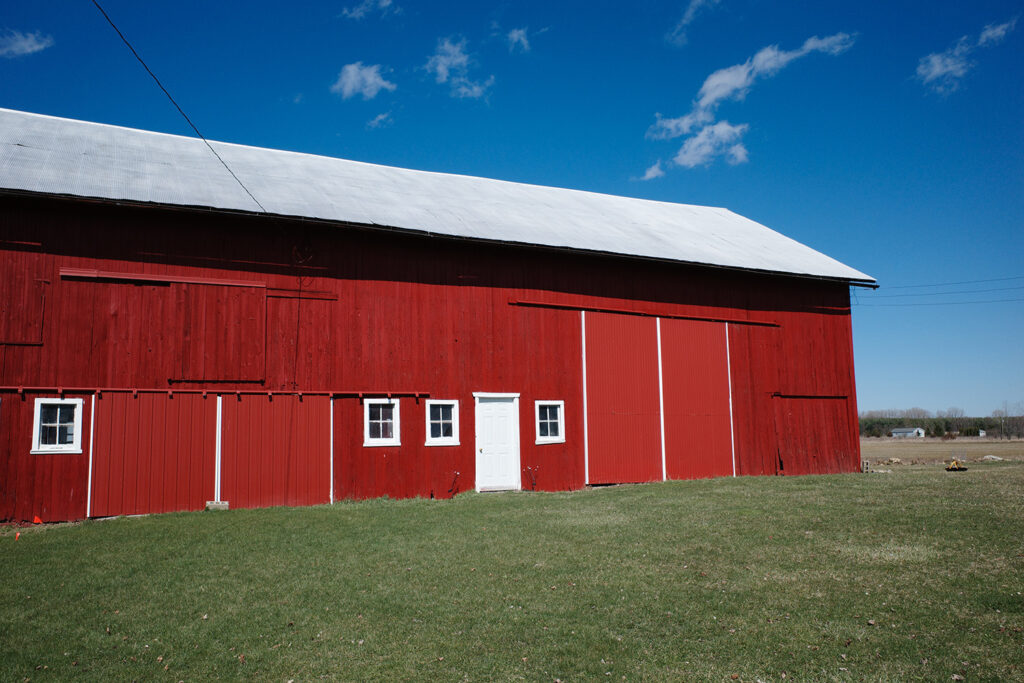
DeWitt — Rural life teaches you harsh lessons rather quickly. My brother and his wife wanted chickens and started with six little hens. To make it an even dozen, they hatched six more straight-run (not identified by sex before hatching) eggs. Four turned out to be roosters. Maybe, they figured, if they all grew up together, they’d get along! Harsh reality set in: A flock can only have one rooster.
Many urbanites aspire to rural life these days, high off the lofty idealizations of idyllic internet farm content. Most don’t last, realizing fairly quickly that they’re not cut out to be country folk. My brother and his wife, however, are.
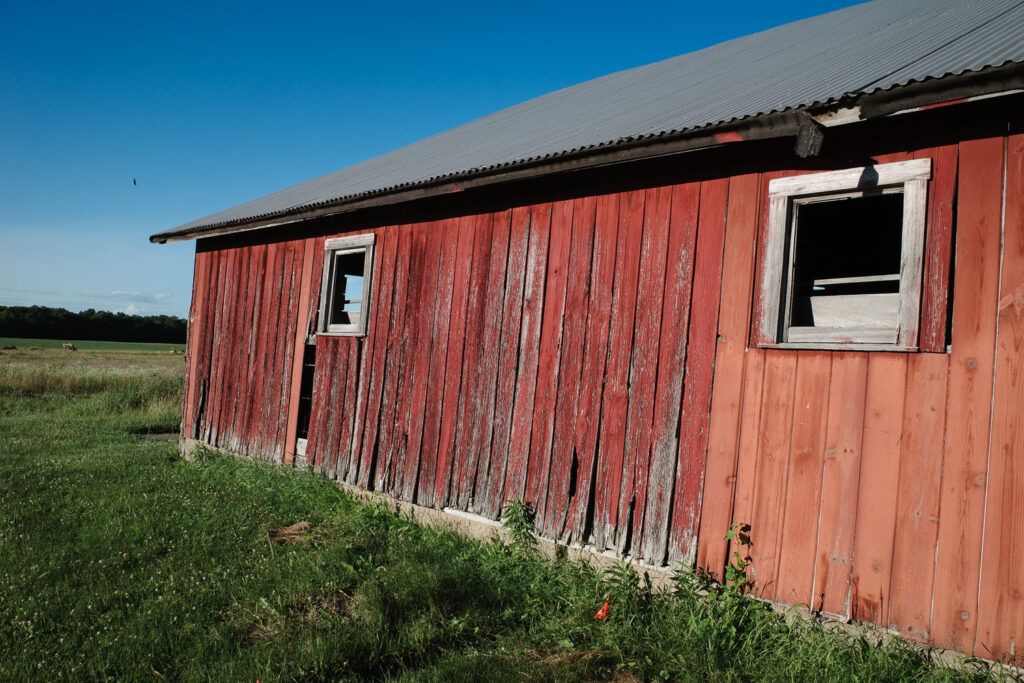
They weren’t always—they left the big city three years ago and bought their Michigan farmhouse. They’ve stuck it out, doubled down, and learned some hard lessons along the way.
About those roosters—the boys grew up, puberty reared its ugly head, they started fighting. Three had to go. My brother picked the one he liked the most, the friendliest one, and those other boys, well, he sharpened his knife and fired up the soup pot. Had to be done.
He’d never killed anything before, not like this, not an animal he raised from birth. He savored their meat, sure, but it still felt strange. He knew the birds. In the end, he got over it. He realized that none of us are all that far from death—life is to be lived, and that means putting meat on the table.
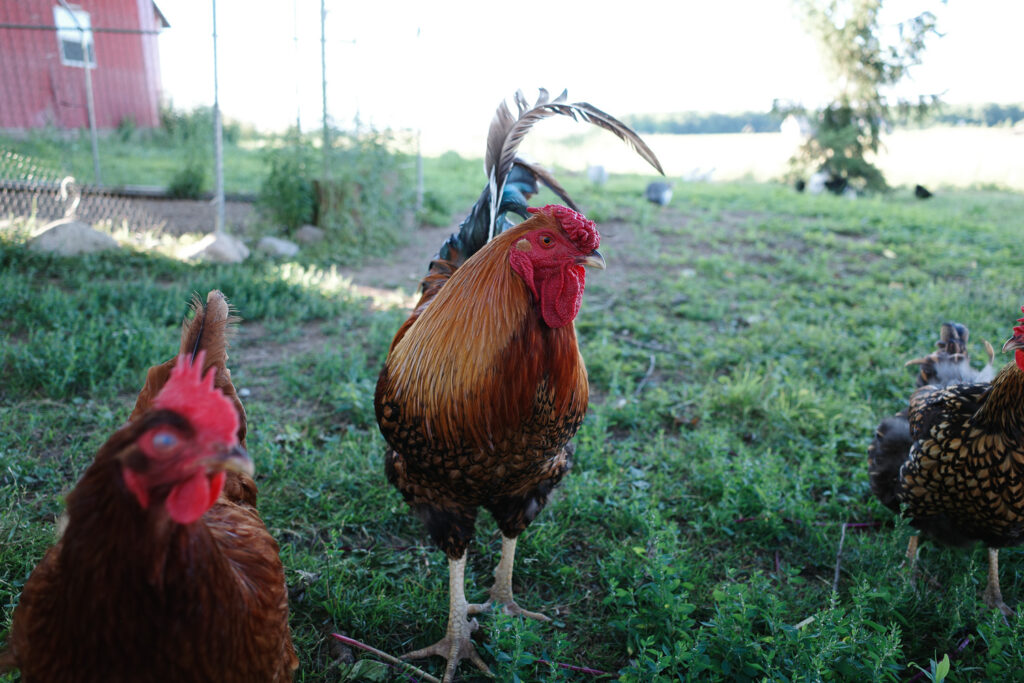
That chosen rooster, who seemed the friendliest, kicked him in the shin one day, gouging deep into his leg with his talon. He showed me the scar. The bird wasn’t so friendly anymore and didn’t like him coming near the hens. A plot set in… time to hatch some new birds, a new rooster would rise. That troublesome bird would be joining his quarreling brothers in the soup pot soon enough.
He let his hens brood, and they hatched some new chicks. Before he even realized they’d left their eggs, the rooster pecked one to death. Another nearly met the same fate at the claws of its own mother (what would Freud say about this?). He grabbed up the surviving chicks and sequestered them in the garage, in a cardboard box with a heat lamp and a comfy pile of wood shavings.
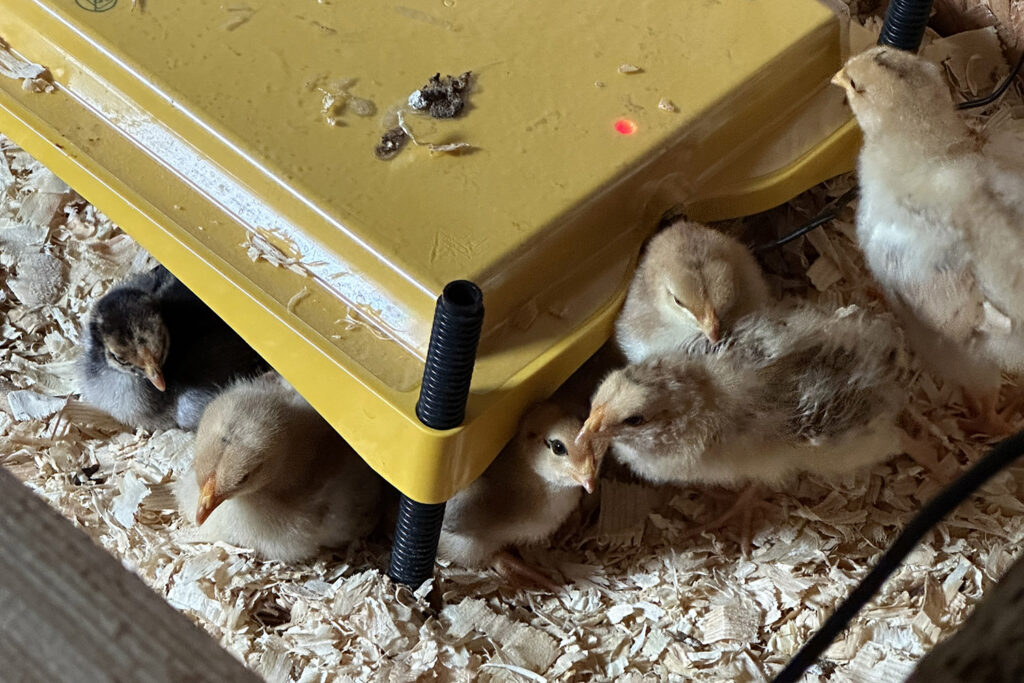
But the wily housecat snuck in when he wasn’t looking. She clawed at one of the chicks, scratched it right up, the same one nearly killed by its own mother. Less than a day old, and the little chick survived two attempted murders.
The problems weren’t all avian. Two woodchucks were eating away at the old wooden barn. So my brother put out a trap. He caught them, sure enough, but what should he do with them? Let them go, drop them off at another farm down the road? They’d just wander back. Give them a stern warning, put them on probation? No, no, no. None of that would do.
He knew they had to go. But how to do the deed? Reddit said to just drown them right in the cage. How gruesome, what a terrible fate. He didn’t like the sound of that. Better to take out the Ruger 10/22, he figured. One quick shot to the head, and it was over. RIP Messrs. Woodchuck.
My brother and his wife had adopted two stray kittens and raised them from birth. Brother and sister, friendly as kittens, but now fully grown, they wouldn’t stop fighting. The boy always wanted to be outside and kept bringing ticks into the house. It was a nightmare to check him all over every time. The girl was afraid of her brother and spent most of her time hiding away in small nooks throughout the house.
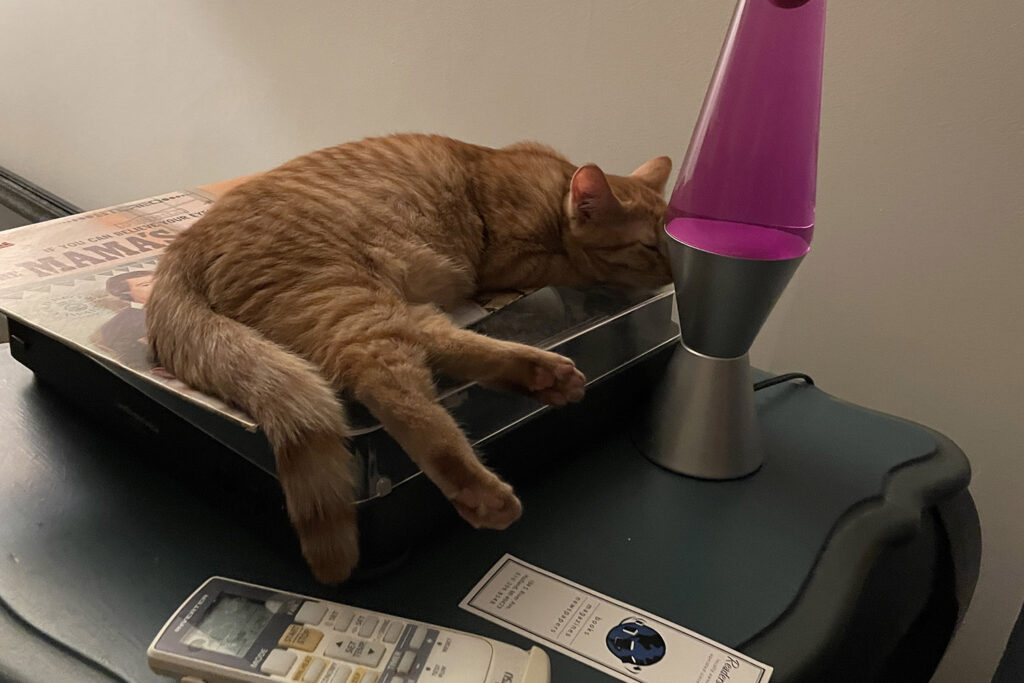
They made a hard choice. The boy became a barn cat, fed regularly but permanently kept outdoors. The girl became an indoor cat, content to rule her roost inside, never ranging the farmland on her own. Peace restored to cat land.
Shortly after moving in, they discovered that the resident raccoon had used the attic of an out-building as his personal lavatory for years. It was a genuine biohazard, the fumes alone made it so they couldn’t even safely enter the building. They paid an exorbitant fee for a man in a HAZMAT suit to clean it up, and out came the traps again, out came the rifle. Sure enough, he got him eventually.
When they bought the property with its acres of tall grass, they knew it would be infested with ticks, just like every other acre of Michigan farmland. Guinea Fowl, they’d read, love to eat ticks. So they got a flock of them, and let them free range. They’re good at what they do, and ate a lot of ticks, but not enough to get rid of the little menaces entirely. Moreover, they’re very stupid birds, more of a hive mind with two to three brain cells apiece than independent animals. They’re nothing like the proud, noble chickens.
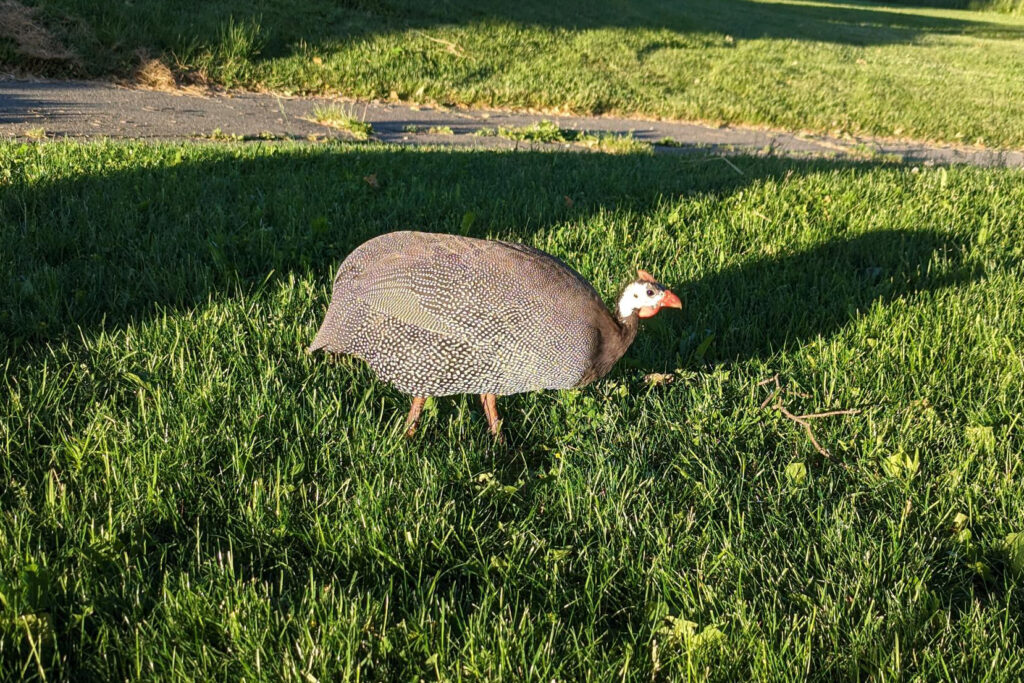
One by one, they succumbed to various forms of predation. A few strayed into the road. No way around it really, they’ll fly over any fence. Drivers love to speed down that country road. His favorite bird, the big gray one, got plastered right in front of my brother. The driver kept going. What could be done?
An owl carried off another. Disease took a third. Same with a favorite chicken, who suffocated and died right in front of my brother. He thought the guineafowl would freeze one winter night, huddled up in a tree, refusing their coop. They somehow survived the frost. The flock remained and continued eating ticks, despite the casualties. They laid their eggs around the farm, hiding them in the grass. The cycle perpetuates.
Life goes on. Constancy is the real illusion. The city, with its tall buildings and conveniences on demand, fosters a mindset of permanence. The country, with its cycles of life and death, the immediacy of the muck and mire, forces a deeper understanding.
Life is always moving, and we must always move forward with it.
Bobby Mars is an artist, alter ego, and former art professor. Follow him on X @bobby_on_mars.